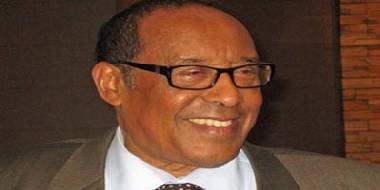Somaliland needs recognition, says leader

Somaliland President Ahmed Mohamed Silanyo said problems in Somalia should not be allowed to hinder Somaliland's development
By Simon Allison|AFP
The leader of Somaliland has called on the international community to give the breakaway state the recognition it “deserves” as it marks 20 years since a unilateral declaration of independence.
“It’s high time the international community gave consideration to the efforts of the people of Somaliland, and gives the recognition that the people of Somaliland need and deserve,” Ahmed Mohamed Silanyo, the self-styled president of Somaliland, told AFP in an interview.
Somaliland broke away from Somalia proper in 1991, the year in which the Horn of Africa nation started its long descent into violence and chaos with the overthrow of strongman president Mohamed Siad Barre.
Somaliland, which has had two decades of relative stability, last week celebrated the 20th anniversary of its “independence” declaration although it remains part of Somalia in the eyes of the international community.
Silanyo argued the impending recognition of South Sudan would strengthen Somaliland’s case for recognition.
“One problem with the African Union has been the idea that African borders should not be changed … But that argument does not hold true anymore,” said Silanyo, pointing out that in contrast to Sudan, which was a single country in colonial times, Somaliland was already separate from the rest of Somalia.
Silanyo said the problems in the rest of Somalia should not be allowed to hinder the development of Somaliland.
“The international community can see that the possibility of change in Somalia does not even appear on the horizon and that there is no reason why we should be held hostage for solutions to be found for Somalia,” he said.
“We hope that the international community will find solutions for Somalia, and we support the efforts of the international community in this regard, but certainly that should not be at our cost.”
Silanyo said that not having international recognition deprives Somaliland of its “rightful seat in the UN and AU” and means it receives no development aid.
On the various secessionist movements operating from within Somaliland — specifically those in the Sool and Sanaag regions — Silanyo said: “There are protests all over the world … We are no exception.”
He argued Somaliland is the most peaceful part of the region and that it has gone a long way towards establishing a democratic and participatory government. “If there are complaints here and there, so what?” said Silanyo, who is Somaliland’s fourth president since the territory uproclaimed its independence.
Silanyo, who has a degree from the London School of Economics and runs the Kulmiye party, took over from Dahir Riyale Kahin after winning the June 2010 polls. The vote was held without violence and the outgoing president gracefully conceded defeat.
Many voters and politicians voiced the hope that such a smooth transfer of power would once again prove their democratic credentials and strengthen their territory’s case for international recognition.
Some Western countries argue Somaliland deserves to become a fully-fledged country and thus gain access to more aid but the African Union is wary of setting a precedent they fear could spur secessions across the continent.
http://ca.news.yahoo.com/somali-breakaway-state-needs-recognition-says-leader-085338990.html
















































